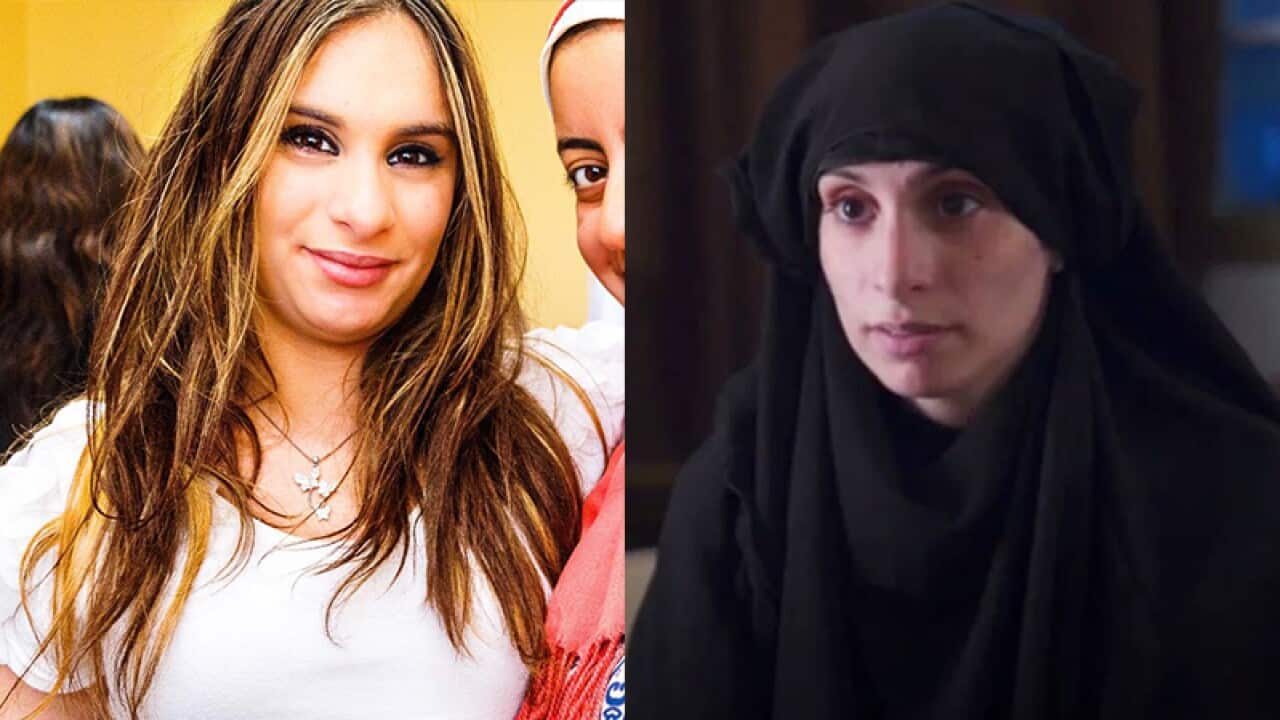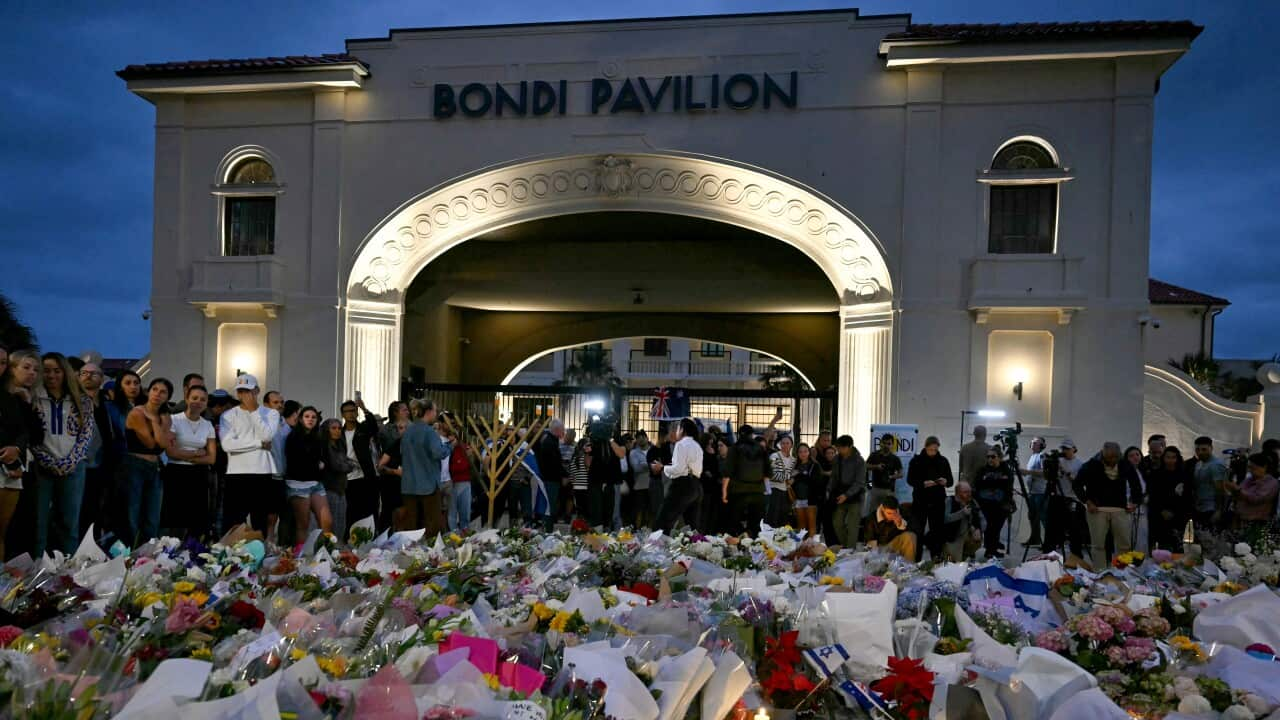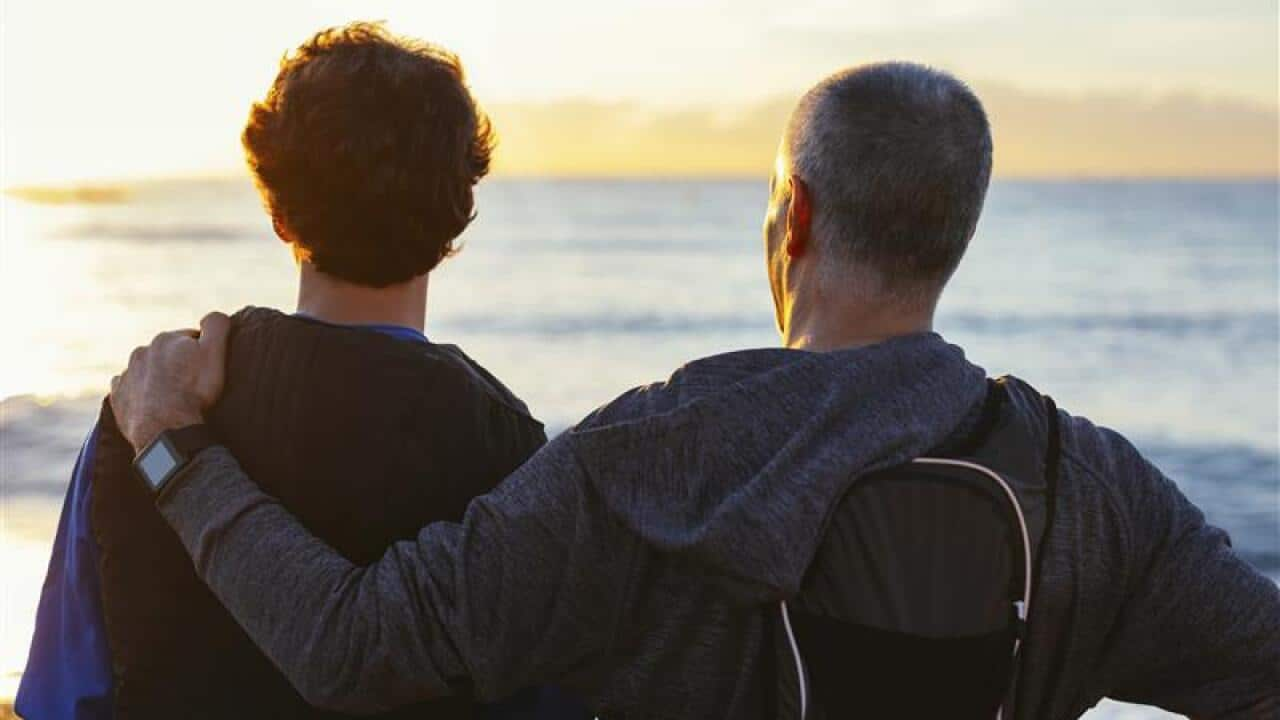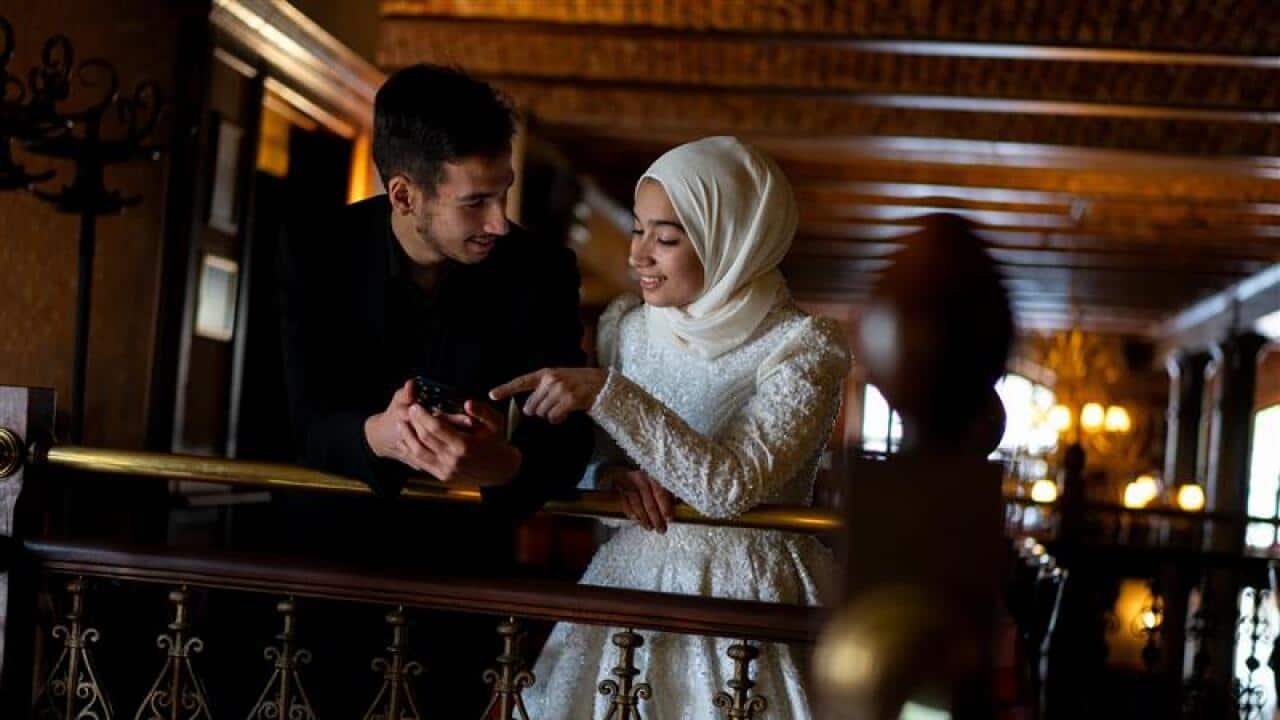Sydney man Kamalle Dabboussy has been lobbying the federal government to act fast to ensure the safe return of dozens of Australians behind held at the Al-Howl camp in Northern Syria, including his daughter Mariam and her three children.
He represents 62 of the 66 Australian women currently held in the camp, who had previously lived in areas controlled by militant group, IS.
Mr Dabboussy said there was fear among the Australians of the impending Turkish military offensive in Northern Syria.
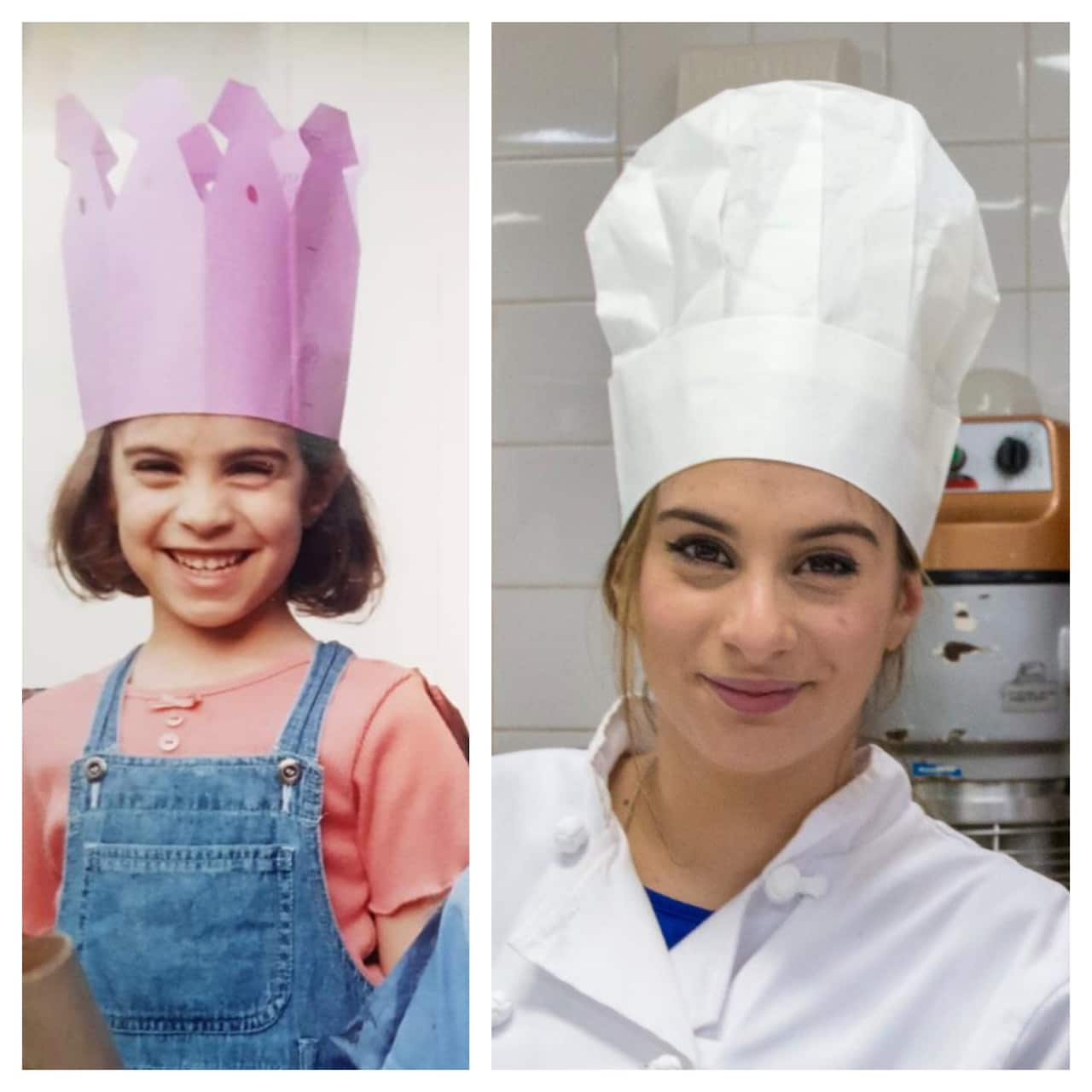
His daughter Mariam left home with her husband and daughter when she was 23 and headed to Syria.
Mr Dabboussy claimed that she was “lied to” and “coerced” into travelling to the country by her husband, who was killed in an airstrike at an IS training facility six months after arriving.
“She didn’t know where she was going; it was a surprise for her that she ended up in Syria,” he said.
He said his daughter remarried twice, and had two children, as a way to survive as a women living in IS territories.
“When the government told me my daughter was in Syria, they said she was coerced into going there.”
Mr Dabboussy recently visited the camp, where he saw his daughter for the first time in more than four years.
“As a father I felt weak and helpless that I couldn’t care for my family,” he said.
“I asked myself, why I couldn’t save my daughter and help her, and this is the same feeling I have now.”
He travelled to the camp with Hayam Zahab, the mother of Nisreen Zahab who is also currently there.
Nisreen left a family holiday to Tripoli when she was 21 years old.
Ms Zahab claimed that her daughter had gone to the Syrian border for charity work, and was “tricked” into moving to IS-held territory and was then unable to return.
Ms Zahab said she was contacted by her daughter 17 days after she disappeared, and that she was “fine and married”.
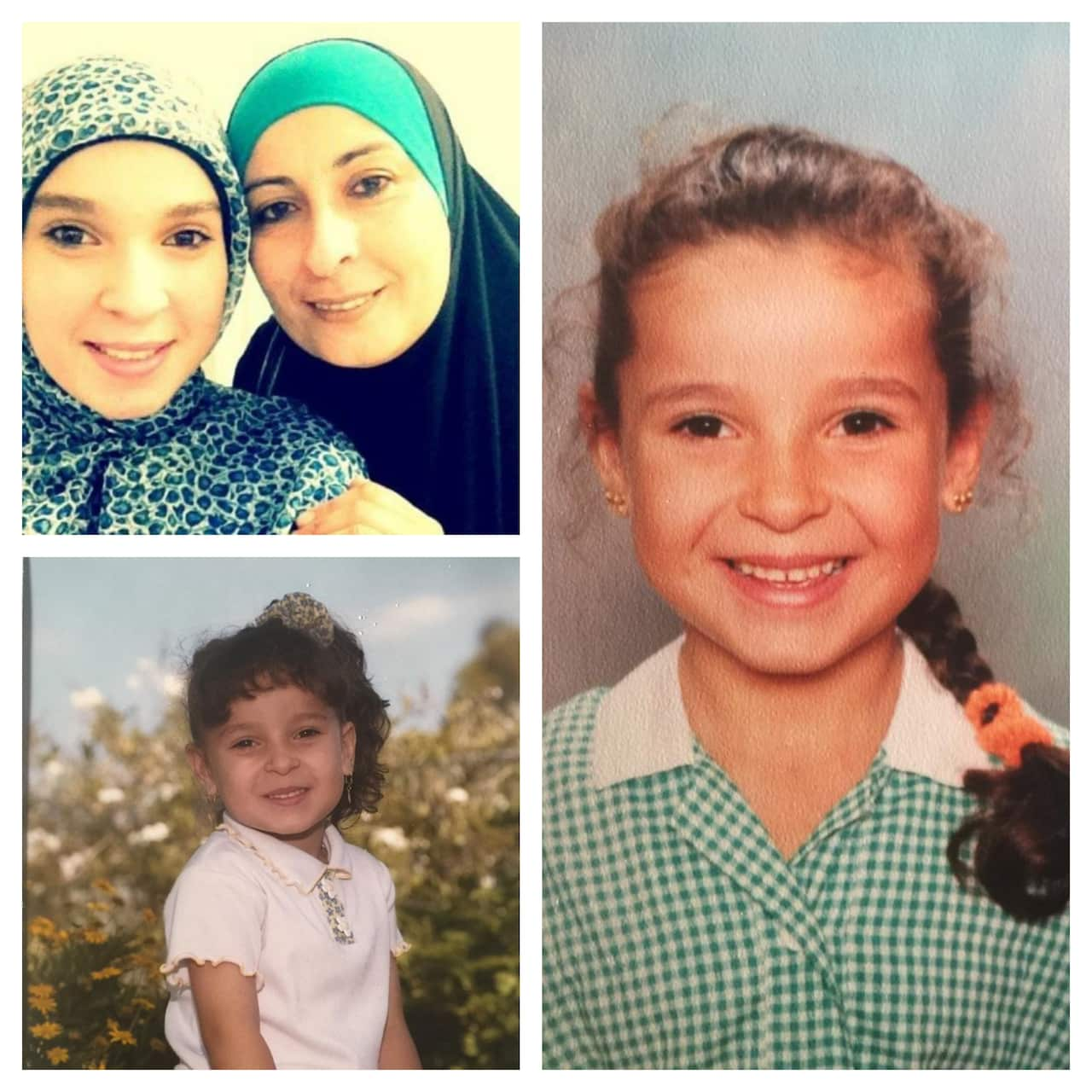
“The family was shaken, the house went dark and I kept hearing her voice arriving from school and calling for me,” Ms Zahab said.
Tough road to return
Federal Government statistics indicate that 230 Australians travelled to the conflicts in Syria and Iraq - more than 100 died in action, while 80 remained.
There are currently Australian men being held in prisons in Iraq, Syria and Lebanon on terror-related charges. Meanwhile, 66 Australian women and children were still in the Al-Howl camp and 40 had already returned.
Most of the returnees came before the government passed a law to automatically strip Australian citizenship from dual nationals suspected of terror related activities in 2016.
Most recently, the government passed the Temporary Exclusion Orders Act to prevent any Australian, aged 14 or older, from returning to Australia for up to two years.
It also imposed return permits where the home affairs minister can impose conditions on Australian citizens when they re-enter the country.
Despite the tightening of legislation, Ms Zahab believes that responsibility for the safe return of Australians lay with the federal government.
“She wants to come back regardless of the consequences, as long as she comes back to her country,” she said.
“They are not radicals, if they were, they wouldn’t want to come back.
“Let’s assume they made a mistake, and they want to correct this mistake, everyone makes mistakes.
“They are Australians; they were born and raised here.”
Mr Dabboussy agreed, saying: “There is no evidence any of these women did any wrongdoing other than being in that part of the world.”
“If they have done anything wrong, they go to court and we do the process here in Australia,” he added.
“I guarantee Mariam has not done anything wrong. Mariam’s story is very clear and is known to the authorities.”
‘Appalling conditions’
The two parents insisted that their daughters tried to flee IS territories but couldn’t.
They both affirmed that their daughters kept moving with the terror group until they were forced out from IS’ last stronghold of Al-Baghuz., in eastern Syria.
Ms Zahab said she hardly recognised her daughter after four years.
“When I saw Nisreen, I felt like my soul just came back to my body,” she said.
“But when I hugged her, I couldn’t recognise her, she had no shoulders, she had no health, and she was healthy when she left.
“I saw the camp and I was shocked… the situation there that our kids live in.”
The UN Commission of Inquiry on Syria described the situation in the camp as “appalling”.
Panel chair Paulo Pinheiro highlighted that up to 70,000 individuals remained interned in “deplorable and inhumane conditions” at the camp and that the vast majority of them were women and children under the age of 12.
The UN said that 390 children died in the camp from malnutrition or untreated infected wounds.
The camp expanded from 10,000 people to more than 70,000 in just a couple of months.
Mr Dabboussy said that out of 66 Australians in the camp, only 20 were adults and the rest were children.
“Among these adults there are many who came to Syria at the age of 14 and 15 and they are now 18 and 19.”
Ms Zahab said people in the camp were forced to sleep on a very thin mattress over very bumpy ground.
“The tents are not fixed to the grounds, and the heat was 52 degrees, the whole situation was miserable,” she said.
“If you are an adult walking on this ground you will fall 10 times in a couple of meters.”
A camp ruled by radicals
The Kurdish authorities in Northern Syria are struggling to run the camp.
They have warned of radical women regrouping and trying to re-impose IS rule in the camp.
Mustafa Bali is the spokesperson for the Syrian Democratic Forces (SDF) which runs the camp.
He said the situation at the camp is “deteriorating sharply” as IS militants “stepped up their regrouping efforts” through women in the camp.
The Syrian Observatory for Human Rights (SOHR), a war monitor based in the UK, reported recently on a trial set up by radical IS woman in the camp.
The organization found that the camp inmates wanted to lash another woman for an unknown crime, and when the Kurdish security forces intervened to stop them, they IS women started shooting at them.
The exchange of fire led to the death of one IS woman and multiple injuries on both sides.
Later the Kurdish forces rounded up 40 women for their role in the deadly exchange.
“They don’t leave their tents. They wear the Burka because they are afraid of the radical women in the camp.”
“When my daughter did a TV interview, she hesitated in revealing her face because she is afraid of the consequences.”
“She can come back to a burnt tent, or they can attack her and her child at night.”
The SOHR reported in early September that IS-aligned women in the camp killed an Iraqi man in his tent for rejecting their ideas.
Mr Dabboussy said that “Right now in the camp, children are more exposed to IS ideas than in the last 4 years,”
“These women were there for reproduction only, they didn’t hold these ideas, and they didn’t mix with that community, their role was in the house only.
“Now their children go to them and ask about things they heard or saw in the camp, things that they didn’t hear before.
“If we really want to help these children, we need to bring them back today, not tomorrow.”
International pressure
During Scott Morrison’s recent visit to the US, President Donald Trump threatened the countries who wouldn’t take their ISIS “prisoners of war”.
He didn’t name Australia, but went for Europe, especially France and Germany. “We're asking the countries from which they came, from Europe, we're asking them to take back these prisoners of war, and they can try them, do what they want."
“At some point, I'm going to have to say, 'I'm sorry, but you either take them back or we're going to let them go at your border.”
He didn’t want to spend “billions of dollars” to hold the ISIS legacy captive for the next 50 years.
The US’s closest ally in the Syrian conflict, SDF, has echoed this sentiment. They cited, among other factors, the severe financial burden on Kurdish authorities, according to a report of repatriation by the Rojava Information Centre , which is closesly alligned with Kurdish authorities.
The report also found that the total number of all IS linked captives in northern Syria edges towards 100 thousand individuals from 54 countries.
Only 4 countries have said publically, they will take their nationals: Kosovo, Morocco, Malaysia and Sudan.
The SDF said that since the fall of IS in Al-Baghuz, Australia has only taken back eight orphans as of June 2019.
Australian foreign minister Marise Payne recently said that the “repatriation of any people in Syria in those contexts at the moment is very, very difficult”.
“As far as individuals are concerned and in some cases families, we are assessing each of those cases on their merits, but our first duty is of course to protect Australia and Australians,” she said.
But families in Australia remained hopeful, but Mr Dabboussy knows there is still a way to go.
“The tone of government officials changed recently, but there is nothing firm yet.”
